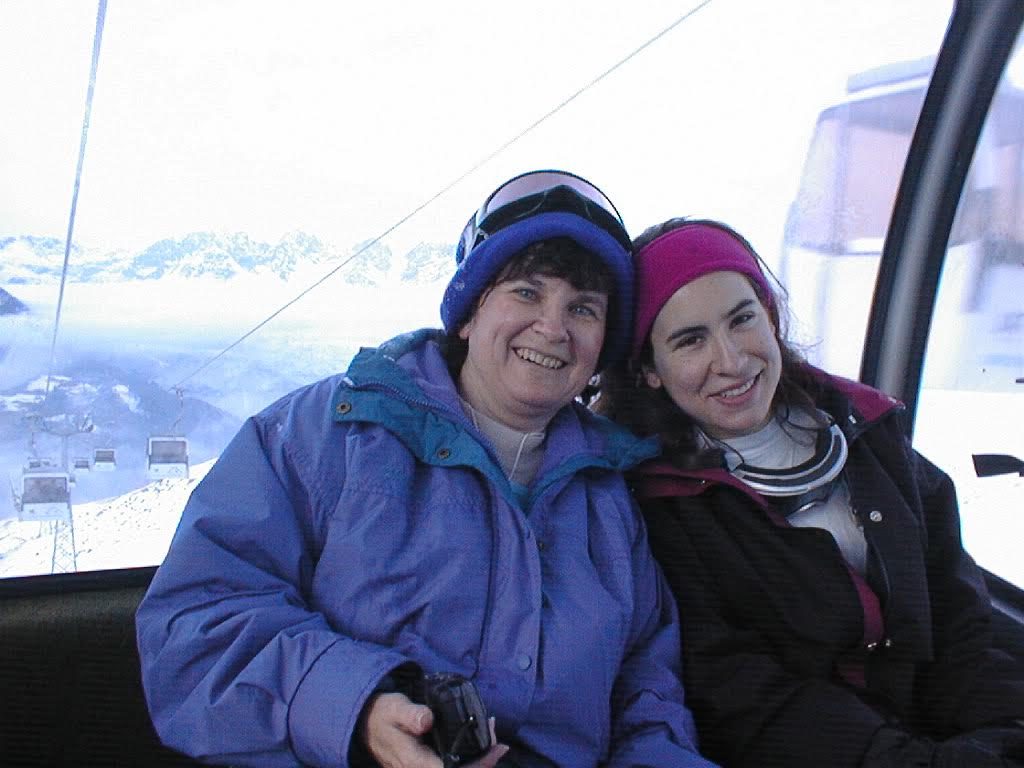
(123RF)
A drizzly evening last April found me at my computer, writing my annual letter to my mother, as has been my tradition for the past decade on the anniversary of her death. But today, the words weren’t flowing. As the sky darkened, I felt mild panic rising in my throat.
“Why not work on it more tomorrow?” suggested my husband, sensing my agitation.
“No,” I grumbled in a sudden burst of annoyance. “It has to be today.”
This was a self-imposed deadline, but one I felt bound to meet — and I did. More than just a ritual to honor my mom’s memory, I’d also envisioned the letters as a sort of emotional storage unit for my grief, a way to keep the sadness and anger neatly contained. With carefully chosen words and tightly constructed paragraphs, I imagined that I could capture the messy emotions and hold them at bay, at least until the following year.
But grief, I soon learned, will not be tidily packaged and put on a shelf to be accessed at a time of one’s choosing. It might lie dormant for a time, only to spill out at the most inopportune moments, alarming the world with its rawness.
‘Writing my mother a letter each year hasn’t insulated me from the sting of these moments, as I’d once hoped. My file folder of painstakingly crafted essays has grown steadily, yet it has failed to contain or diminish the sadness, which only reinvents itself over time.’
Since becoming a mom myself, I’ve experienced these moments more frequently. In 2009, five years after my mom’s death, my first daughter was born; two years later, I welcomed my second daughter. As I watch my kids grow up, I’m overwhelmed by how much my mother is missing: birthday celebrations and inside jokes, dance recitals and school concerts, Saturday morning pancake breakfasts and endless cups of coffee. My mom isn’t here to share in these joys, and she wasn’t by my side during some sad and frightening times, from health setbacks to the postpartum emotional rollercoaster.

I notice my mom’s absence not only in the big milestones and challenges but also in the everyday moments when a glimmer of her quirky personality resurfaces. There was the day I was in the grocery store and saw a can of Lysol on the shelf, and I instantly recalled how my mom and I had secretly used a variation of “Lysol” as a nickname for a cranky acquaintance. There are the weekend afternoons when, bearing a striking resemblance to my mom decades ago, I dash out of the house holding my indispensable cup of coffee as my family waits in the car.
Writing my mother a letter each year hasn’t insulated me from the sting of these moments, as I’d once hoped. My file folder of painstakingly crafted essays has grown steadily, yet it has failed to contain or diminish the sadness, which only reinvents itself over time.
And yet, I feel compelled to complete the ritual, year after year.
The content of my letter is different each year. Sometimes it’s an exploration of a singular event during which I felt my mom’s absence acutely, like the 2016 spring break week when I was battling strep throat all the while trying to care for my kids. Sometimes it’s more matter-of-fact, as if my mother is sitting in some imaginary boardroom and I’m presenting an executive summary of that year’s emotional highlights and low points. Other times, my missive is a deep dive into however I’m feeling on that particular day, whether I’m angry, heartbroken or hopeful.
When the letter is done, I feel somehow lighter. The grief remains, as it always will. But now it’s just a bit more spread out, the burden less concentrated, scattered across words, sentences, and paragraphs on pages. The experience of loss still colors my day-to-day life, but there’s a comfort in knowing that a piece of it has been cataloged, acknowledged and expressed, outside of my head.
With the words I write, I can take part of my sorrow and hold it by the hand. I cannot control its shape or weight or banish it from my life, but I can preemptively choose to bring it along with me before it threatens to pull me into darkness.
So I keep writing these notes my mother will never read, poring over letters that will never bear a postage stamp.
Gina Rich is a writer and mother of two daughters. She shares caffeinated ramblings on her website, www.lovehopeandcoffee.com.









